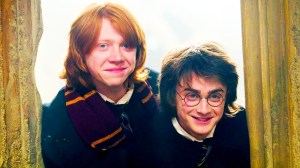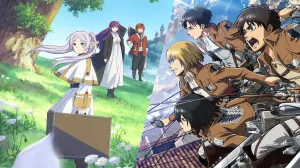Fans have kept the Harry Potter franchise alive with their intense love of the material, but their focus has also drawn attention to some notable plot holes and mistakes in the story. There are dozens of issues with the worldbuilding and the narrative throughout the series, especially in later books and movies, which introduce concepts like time travel and truth serum. For many, the strongest nostalgia is for the early installments of the series, when it was just getting started and had less chance of contradicting itself. Sadly, there are some issues to note there as well, and once you see them, you’ll never watch or read it the same way again.
Videos by ComicBook.com
Harry Potter and the Sorcerer’s Stone — known to the rest of the world as Harry Potter and the Philosopher’s Stone — kicks off as a quirky YA fantasy full of dry British humor and irony. It had a lot of fun with its concept — an esoteric society of witches and wizards lives alongside regular people very matter-of-factly, and muggles help them stay hidden by seeing what they expect to see. However, even in this first installment, the mechanics of magic and secrecy are inconsistent, not to mention the issues any story has with characters making inscrutable decisions and authors making mistakes in their own continuity.
For some fans, the plot holes are just a part of Harry Potter’s homegrown charm, but for others, they’re too distracting to abide. Read on for four things in Harry Potter and the Sorcerer’s Stone that still make no sense.
Chaperone Hagrid
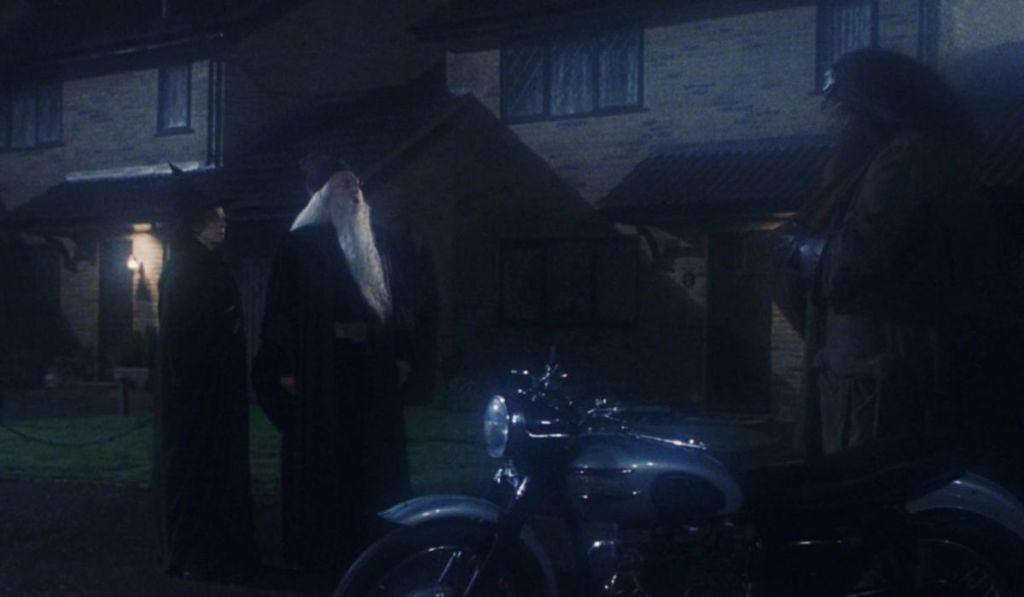
The first book plays up the mystery of Harry’s (Daniel Radcliffe) destiny for quite a while, especially by YA standards, until finally Hagrid (Robbie Coltrane) tracks Harry and the Dursleys down in a secluded shack. When he arrives, he’s shocked to learn that Harry knows nothing about Hogwarts or magic, which is odd because that’s exactly why he was sent on this errand. Hogwarts wouldn’t have sent a deluge of letters to 4 Privet Drive unless they knew Harry wasn’t opening them, and Hagrid should have been told that when he was sent to pick up The Boy Who Lived for a shopping spree.
There’s another issue with this scene in the books that is completely absent from the movie — when Harry asks how Hagrid found him, Hagrid replies that he “flew,” yet when they leave, they do so in the same rowboat that brought Harry and the Dursleys. There’s no mention of flying, and Harry doesn’t seem to see Hagrid’s flying motorbike around. It’s possible that Hagrid arrived on a Thestral, but we know that a broom can’t carry the half-giant’s weight.
Troll in the Dungeon
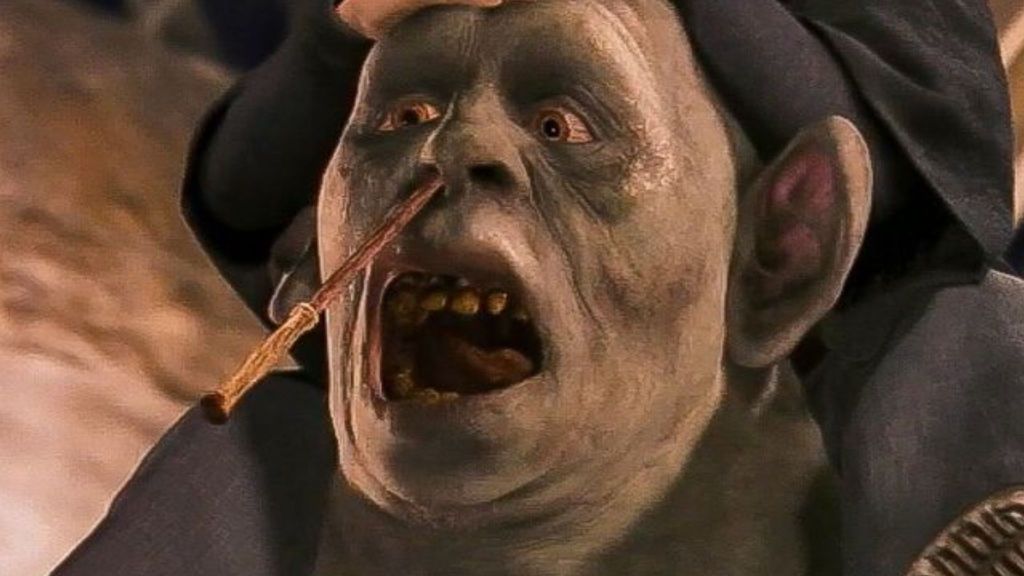
This is a fan-favorite, especially among real-life teachers. At the Halloween feast, Professor Quirrell (Ian Hart) bursts into the Great Hall to warn that there’s a dangerous troll loose in the dungeon, causing panic among all the students and faculty there. Dumbledore (Richard Harris) seizes control of the room with his booming voice, but then gives the inexplicable order for all students to return to their dormitories. He and the teachers then went looking for the monster, which means they clearly didn’t know exactly where it was. Dumbledore could have been sending those students right into the troll’s path, when he could have easily ordered them to stay and shelter in the Great Hall together.
On top of that, the Slytherin dormitories are literally in the dungeons, right where Quirrell has warned the troll is rampaging. Some fans like to joke that Dumbledore knowingly sent his least favorite house into danger here, though we know that’s not really how he feels. Still, it makes as much sense as anything in this context.
Outdoor Detention
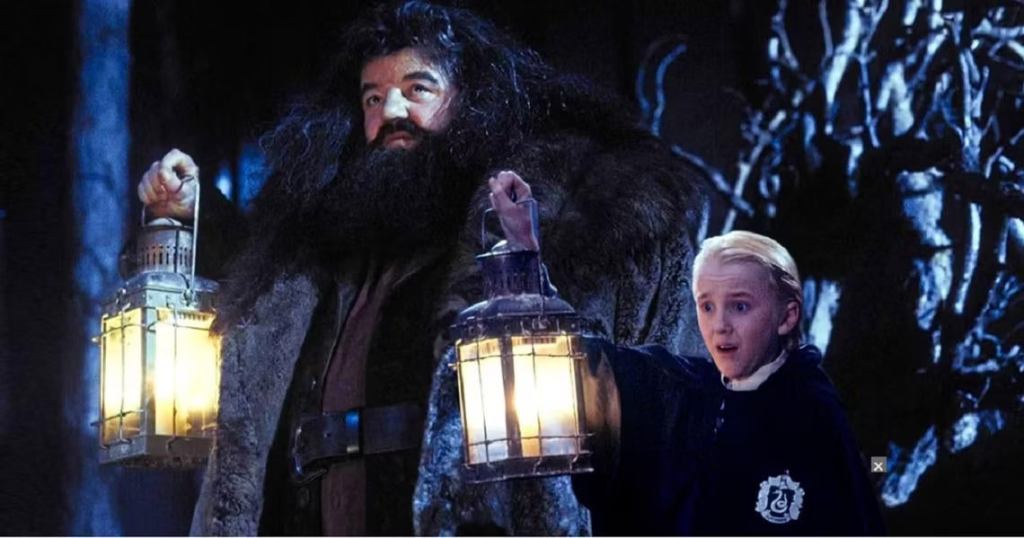
Harry, Ron (Rupert Grint), Hermione (Emma Watson), and Malfoy (Tom Felton) get a shockingly cruel and dangerous punishment for breaking curfew — they must accompany Hagrid into the Forbidden Forest at night to seek out injured unicorns and track the predator that’s harming them. This is what passes for “detention” at Hogwarts, and here, we get a perfect example of the dry irony that undercuts many of the big surprises in this series — Filch (David Bradley) laments that this punishment actually isn’t severe enough, and that the students should be undergoing legitimate medieval torture in the castle’s dungeons.
In the moment, this line gets a laugh and the viewer can forget about their confusion, but later on viewers and readers will inevitably scratch their heads at this scene. Hogwarts students are specifically warned to stay out of the forest because their lives are at risk there, and normally, they’d be punished just for exploring among the trees. Moreover, later books show us much more conventional “detentions,” such as Harry helping Gilderoy Lockhart (Kenneth Branagh) answer fan mail. The trip to the Forbidden Forest is obviously a plot contrivance, giving Harry a chance to encounter the vampiric Voldemort.
Poor, Stuttering Professor Quirrell

Finally, a major plot hole throughout all of Harry Potter and the Sorcerer’s Stone is Harry’s inconsistent sense of evil and danger. One of the major reasons Harry and his friends suspect Snape (Alan Rickman) of trying to steal the stone throughout the book is that when he’s near, Harry often experiences pain in his magical scar. By contrast, Quirrell is the one actually sharing his body with Voldemort’s essence, yet Harry encounters Quirrell without Snape many times, and there’s no mention of his scar hurting.
It’s plausible that Harry’s scar hurts around Snape because Snape is a former Death Eater, and a vindictive bully as well. However, if the traces of dark magic around Snape are enough to set off this sixth sense, shouldn’t the physical presence of Voldemort trigger it all the more? Quirrell manages to hide his agenda behind his meek persona, but that shouldn’t fool Harry’s scar, nor the magical wards protecting the castle, for that matter.
Harry Potter and the Sorcerer’s Stone is far from perfect, and while many fans find that charming, others are finding it more and more frustrating as time goes on. The film is streaming now on HBO Max, while the novel is available in print, digital, and audiobook formats.

